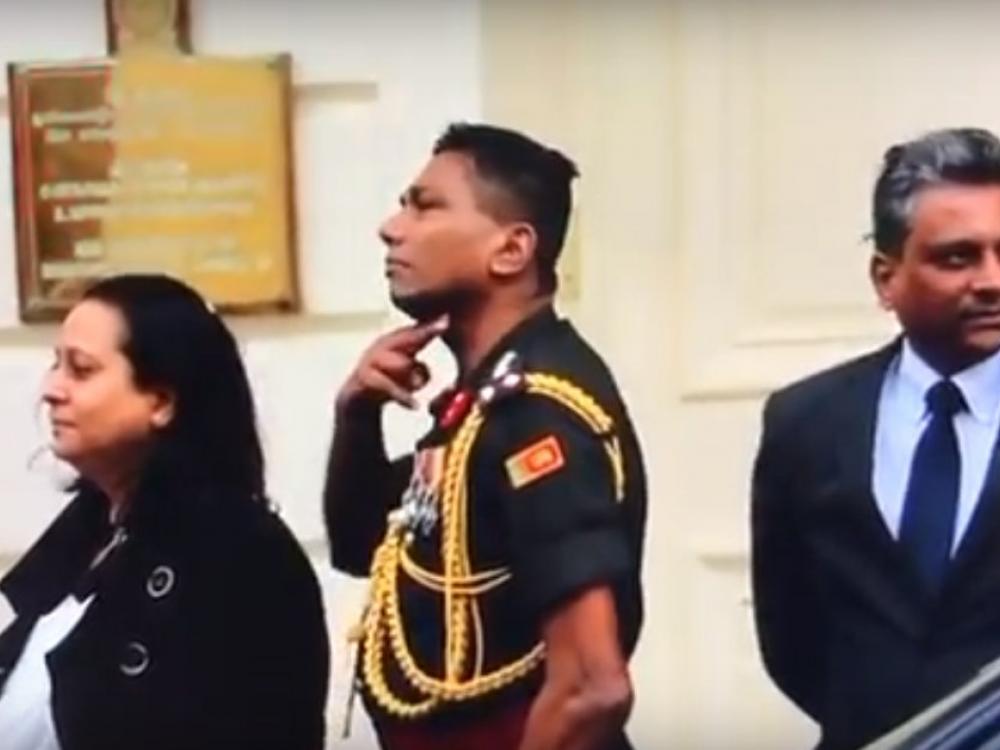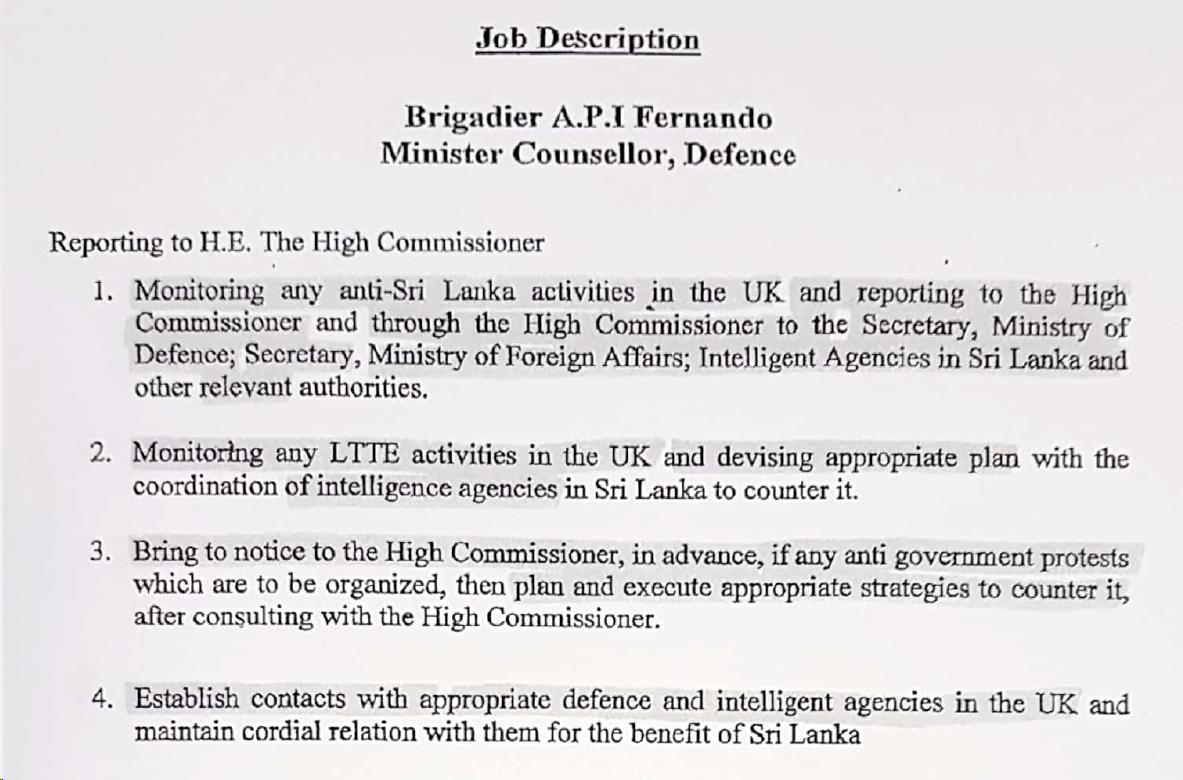A Brief Colonial History Of Ceylon(SriLanka)
Sri Lanka: One Island Two Nations
A Brief Colonial History Of Ceylon(SriLanka)
Sri Lanka: One Island Two Nations
(Full Story)
Search This Blog
Back to 500BC.
==========================
Thiranjala Weerasinghe sj.- One Island Two Nations
?????????????????????????????????????????????????Friday, December 4, 2020

03 December 2020
The British High Court heard Sri Lanka's Brigadier Priyanka Fernando's appeal against his conviction of violating the Public Order Act, after he motioned death threats to Tamil protesters in London in 2018.
During the hearing which took place remotely on December 2, Fernando's counsel argued to overturn the conviction by stressing that he enjoyed diplomatic immunity when the incident occurred and when the summons were served.
The High Court judges have reserved judgement and the publication of the judgement is expected, but not guaranteed, before Christmas. The outcome of the case is likely to weigh heavily on future cases involving diplomatic immunity.
Fernando was stationed in London as Sri Lanka's military attaché in February when he attended a celebration at the Sri Lankan High Commission to mark 'Independence Day', whilst British Tamils held a demonstration outside with placards and Tamil Eelam flags. Sri Lankan officials were also seen photographing the protesters in an apparent act of intimidation.
During the court case in March 2019, the job description of a Sri Lankan defence attaché was read out to Westminister Magistrate's Court, as the defence argued that the gesture was a part of the Brigadier's job description.
The job entails "monitoring any anti-Sri Lanka activities in the UK" and reporting to the minister of defence, intelligence agencies, amongst others, as well as "monitoring any LTTE activities in the UK and devising appropraite plan with the coordination of intelligence agencies in Sri Lanka to counter it," the defence explained.
The judge rejected the idea that the death threat could be part of a defence attaché's job description.
See the job description in full below:

Photograph @pmillerinfo
As part of the genocidal offensive in 2009, Brigadier Fernando also fought in Weli Oya and Janakapura for the 11 Gemunu Watch Battalion as part of the 59 Division of the Sri Lankan Army, implicating himself in war crimes. The United Nations OHCHR Investigation's into Sri Lanka detailed multiple incidents implicating the 59 Division in the shelling of hospitals south of Mullaitivu.
Related Articles:
05 March 2020 : Sri Lanka's 'death threat' brigadier rewarded once more
05 February 2018 : Sri Lankan officer that threatened Tamil protestors implicated in war crimes


